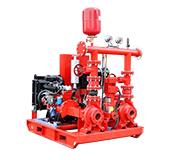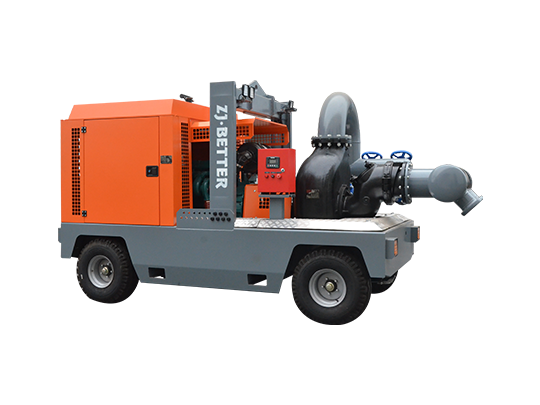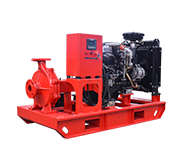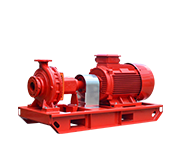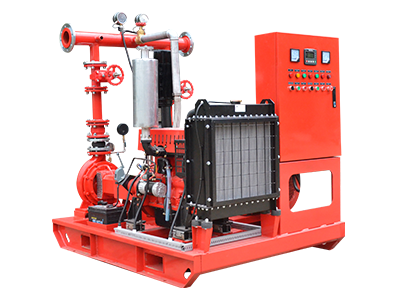- Fire Pump System
-
- UL-Listed Fire Pump SetEDJ End Suction Fire Pump SetEDJ Fire Pump SetEJ Small Flow Fire Pump SetFire Pump PackagesContainerized fire pump setDiesel Fire Pump SetED Small fire pump setElectric Jockey Fire Pump SetFire Pump Set with Jockey PumpFire Pump SystemSplit Case Fire Pump SetMutistage EDJ Fire Pump SetDiesel Fire Pump Set with Jockey PumpFire Fighting Pump SystemElectric Diesel Jockey Fire Pump SetFire Fighting Pump Set with Jockey PumpSmall Capacity Electric Fire Pump SetDJ Fire Pump Set with Jockey PumpEJ Fire Pump SetED Fire Pump Set (Electric+Diesel pump)Diesel Engine Fire Pump SetDiesel Fire Jockey PumpSmall Fire Pump SetEDJ Fire Pump SystemFire Water Pump SetFire Pump AssemblyDJ Small Flow Fire Pump SetCummins Engine Fire Pump Set
- Mobile Pump Unit
-
- Split Case Series Mobile Pump TruckSelf Priming Series Mobile Pump TruckCentrifugal diesel driven dewatering pumps open frame trailerFlow-mixing Mobile Pump TruckFlow-mixing Mobile Pump TruckManure Pump TruckP12 modle mobile Pump truckP10 Modle Mobile Pump Truck1000m³Self Priming Series Mobile Pump TruckLarge Flow Non-Clogging Mobile Fire Pump TrailerTrailer Mounted Fire PumpFire Emergency Mobile Pump TruckDiesel Engine Emergency Mobile Trailer Pump
- Diesel Fire Pump
-
- UL Listed Diesel End Suction Fire PumpXBC-S Diesel Split Case Fire PumpXBC-IS Diesel End Suction Fire PumpXBC-D Diesel Multistage Fire PumpVertical Turbine Diesel Engine Fire PumpDiesel Engine Single-Stage Centrifugal PumpXBC-IS Diesel End Suction Fire Fighting PumpXBC-S Diesel Engine Split Case Fire PumpDiesel Engine End Suction Fire PumpXBC-IS Diesel End Suction Fire PumpsZWC Diesel Engine Self Priming Pump for IrrigationDiesel Engine End Suction Fire Fighting PumpXBC-S Heat Exchange Diesel End Suction Fire PumpXBC-XA Diesel Engine End Suction Fire PumpXBC-IS Diesel Engine Fire PumpDiesel Engine End Suction Fire PumpXBC-IS Diesel Engine End Suction Fire PumpXBC-ISO Diesel Fire Fighting PumpPortable Fire PumpFire Booster Pump

Email: zjbetter@119pump.com
Tel:+86 15336708022(Gloria) +86 13306708055 (Ivy) +86 13357006058 (Serena) +86 13357022877 (Wendy) +86 17757009882(Kate)
Fax:0086-570-3010238
-
Can a diesel fire pump be used for other purposes besides firefighting?
While diesel fire pumps are primarily designed for firefighting purposes, they can also be used for other applications that require high-pressure water pumping, such as irrigation, dewatering, or water transfer in industrial settings. However, it's essential to ensure that the pump is compatible with the intended use and that any modifications comply with applicable regulations and safety standards.
View more +
-
What factors should be considered when selecting a diesel fire pump?
When selecting a diesel fire pump, several factors should be considered, including the size and layout of the building or facility, the water demand for firefighting purposes, the availability of water sources, and any regulatory requirements or standards that need to be met. Additionally, factors such as the pump's flow rate, pressure rating, and reliability should be evaluated to ensure it meets the specific needs of the application.
View more +
-
What are the typical maintenance requirements for a diesel fire pump?
Typical maintenance requirements for a diesel fire pump include regular inspections of the engine, fuel system, cooling system, and pump components, as well as periodic testing of the pump's performance to ensure it operates effectively during an emergency.
View more +
-
How long can a diesel fire pump operate continuously?
The runtime of a diesel fire pump depends on factors such as fuel tank capacity, engine efficiency, and workload. However, diesel fire pumps are designed to operate continuously for extended periods during firefighting operations, provided they are adequately fueled and maintained.
View more +
-
How do fire pump suppliers support customers in navigating complex regulatory requirements and standards?
Fire pump suppliers leverage their expertise and industry knowledge to assist customers in navigating complex regulatory requirements and standards governing fire protection systems. This may involve providing guidance on applicable codes, regulations, and standards, such as those established by organizations like the National Fire Protection Association (NFPA) and local building authorities. Suppliers may offer resources and tools, such as compliance checklists, technical specifications, and documentation packages, to help customers understand and comply with regulatory requirements. Additionally, suppliers may collaborate with customers and regulatory agencies to advocate for best practices and standards that enhance fire safety and resilience in the built environment. By serving as trus
View more +
-
How do fire pump suppliers ensure product quality and reliability throughout the lifecycle of their equipment?
Fire pump suppliers employ rigorous quality assurance processes and standards to ensure that their products meet or exceed industry benchmarks for performance, reliability, and safety. This begins with the selection of high-quality materials and components from reputable suppliers and continues through every stage of the manufacturing process, including design, fabrication, assembly, and testing. Suppliers conduct thorough inspections and quality control checks at each step to identify and address any deviations or defects promptly. Additionally, suppliers may implement robust product testing protocols, including performance testing, durability testing, and certification testing, to validate compliance with relevant industry standards and regulatory requirements. Once products are delivere
View more +
-
What measures do fire pump suppliers take to ensure safety and compliance in their manufacturing processes?
Fire pump suppliers prioritize safety and compliance in their manufacturing processes to protect workers, customers, and the environment from potential hazards and risks. This may involve implementing comprehensive health and safety management systems, conducting regular risk assessments and audits, providing appropriate training and protective equipment for employees, and adhering to applicable laws, regulations, and industry standards. Suppliers may also engage in continuous improvement initiatives to enhance safety performance, minimize accidents and incidents, and foster a culture of safety and responsibility throughout the organization.
View more +
-
How do fire pump suppliers manage supply chain disruptions and ensure continuity of product availability?
Fire pump suppliers implement robust supply chain management practices to mitigate risks associated with disruptions such as raw material shortages, production delays, transportation issues, or geopolitical instability. This may involve diversifying sourcing strategies, maintaining strategic inventories of critical components, establishing alternative production facilities or suppliers, and fostering strong relationships with key stakeholders throughout the supply chain. By proactively identifying and addressing potential risks, suppliers can enhance resilience and maintain continuity of product availability even in challenging circumstances.
View more +
-
How can building owners and facility managers ensure the reliability and performance of fire pump sets over the long term?
Building owners and facility managers can ensure the reliability and performance of fire pump sets by implementing a comprehensive maintenance program, conducting regular inspections and testing, training personnel in proper operation and emergency response procedures, and staying informed about industry developments and best practices. Collaboration with qualified fire protection professionals and adherence to relevant standards and regulations are essential for maintaining the integrity of fire protection systems.
View more +
-
Are there any special considerations for installing fire pump sets?
Yes, several factors should be considered during the installation of fire pump sets. These include proper location to ensure accessibility and protection from environmental elements, adequate ventilation and drainage to prevent overheating or water damage, and compliance with local zoning and building regulations.
View more +
-
What are some common maintenance tasks for fire pump sets?
Common maintenance tasks for fire pump sets include regular inspection and testing of pumps, motors, controllers, and piping; lubrication of moving parts; cleaning of filters and strainers; and verification of proper operation of safety devices and alarms. It's essential to follow manufacturer recommendations and industry best practices for maintenance.
View more +
-
Can fire pump sets be used for purposes other than firefighting?
While fire pump sets are primarily designed for firefighting purposes, they may also be used for other applications requiring high-pressure water supply, such as irrigation or industrial processes. However, it's essential to ensure that their primary function for firefighting is not compromised.
View more +
-
Who is responsible for maintaining and testing fire pump sets in a building?
Responsibility for maintaining and testing fire pump sets typically falls on the building owner or manager. They may work with qualified contractors or service providers specializing in fire protection systems to ensure compliance with regulations and standards.
View more +
-
What are some best practices for optimizing the performance and longevity of firefighting pumps?
To optimize the performance and longevity of firefighting pumps, organizations implement best practices for maintenance, operation, and training. Regular inspection and lubrication of pump components, monitoring of fluid levels and pressures, and adherence to recommended operating procedures help prevent equipment failures and ensure reliable pump performance. Training programs for firefighters and maintenance personnel cover proper pump operation, troubleshooting techniques, and emergency response protocols, empowering personnel to respond effectively to fire emergencies and maintain equipment readiness at all times.
View more +
-
How do firefighting pumps support sustainable firefighting practices and environmental stewardship?
In response to growing concerns about environmental sustainability, firefighting pumps are increasingly designed and operated with a focus on minimizing ecological impact and conserving natural resources. Manufacturers prioritize the use of eco-friendly materials, energy-efficient components, and recyclable packaging in pump production, reducing carbon footprint and waste generation throughout the product lifecycle. Fire departments and emergency responders implement water conservation measures, such as efficient nozzle designs and water recycling systems, to minimize water usage during firefighting operations and protect fragile ecosystems. Additionally, training programs educate personnel on sustainable firefighting practices, emphasizing the importance of ecosystem preservation and resp
View more +
-
What are some best practices for optimizing the performance and longevity of firefighting pumps?
To optimize the performance and longevity of firefighting pumps, organizations implement best practices for maintenance, operation, and training. Regular inspection and lubrication of pump components, monitoring of fluid levels and pressures, and adherence to recommended operating procedures help prevent equipment failures and ensure reliable pump performance. Training programs for firefighters and maintenance personnel cover proper pump operation, troubleshooting techniques, and emergency response protocols, empowering personnel to respond effectively to fire emergencies and maintain equipment readiness at all times.
View more +
-
How do firefighting pumps contribute to disaster resilience and community preparedness initiatives?
Firefighting pumps play a critical role in enhancing disaster resilience and community preparedness by providing essential firefighting capabilities and ensuring reliable water supply during emergencies. Municipalities and emergency management agencies incorporate firefighting pumps into comprehensive disaster preparedness plans, establishing mutual aid agreements, and conducting joint training exercises to coordinate resources and response efforts across multiple jurisdictions. By investing in robust firefighting infrastructure and fostering collaborative partnerships, communities can better withstand and recover from disasters, reducing the impact on lives, property, and critical infrastructure.
View more +
-
How do firefighting pumps contribute to water conservation and drought resilience efforts?
In regions prone to water scarcity and drought conditions, firefighting pumps play a crucial role in water conservation and drought resilience efforts. Efficient pump systems, combined with strategies such as rainwater harvesting, graywater recycling, and water reuse technologies, help municipalities and firefighting agencies optimize water resources and minimize reliance on finite freshwater supplies. By integrating sustainable water management practices with fire protection infrastructure, communities can enhance resilience to water-related challenges while maintaining effective firefighting capabilities.
View more +
-
How do firefighting pumps adapt to changing fire dynamics and environmental conditions?
Firefighters often face dynamic and unpredictable fire behavior, influenced by factors such as wind speed, fuel type, and terrain. Modern firefighting pumps are equipped with adjustable pressure settings, variable flow rates, and advanced control systems that allow firefighters to adapt quickly to changing fire conditions. Additionally, pumps designed for use in extreme environments, such as desert or arctic climates, incorporate specialized features to withstand temperature extremes and harsh operating conditions.
View more +
-
How do firefighting pumps contribute to emergency response and disaster relief efforts?
Firefighting pumps are essential tools for emergency response and disaster relief efforts, providing critical water supply and fire suppression capabilities in the aftermath of natural disasters, such as hurricanes, floods, and earthquakes. Rapid deployment of mobile pump units and portable water supply systems enables first responders to establish temporary fire suppression operations and provide lifesaving assistance to affected communities.
View more +
-
What are the economic considerations associated with investing in firefighting pumps and fire protection infrastructure?
While the initial investment in firefighting pumps and fire protection infrastructure may represent a significant capital expenditure, the long-term benefits of enhanced fire safety, reduced property damage, and potential savings in insurance premiums outweigh the costs. Cost-benefit analyses and risk assessments help stakeholders make informed decisions about allocating resources to improve fire protection capabilities and mitigate financial risks associated with fire emergencies.
View more +
-
How do advancements in technology impact the design and performance of firefighting pumps?
Advancements in technology, such as improved materials, computer-aided design (CAD) software, and digital monitoring systems, have led to significant enhancements in the design, performance, and efficiency of firefighting pumps. These technological innovations enable manufacturers to produce pumps that are more reliable, durable, and responsive to the needs of firefighters and emergency responders.
View more +
-
What are the environmental considerations associated with firefighting pumps?
Firefighting pumps, particularly those powered by internal combustion engines, can have environmental impacts such as air and noise pollution. Efforts to mitigate these impacts may include using cleaner-burning fuels, implementing noise-reduction measures, and incorporating environmentally friendly design features into pump systems.
View more +
-
Are there regulations or standards that govern the design and operation of firefighting pumps?
Yes, various regulations and standards, such as those set forth by organizations like the National Fire Protection Association (NFPA), govern the design, installation, testing, and maintenance of firefighting pumps to ensure their safety and effectiveness. Compliance with these standards is essential for maintaining fire safety standards and regulatory requirements.
View more +
-
What are some common challenges or issues encountered with firefighting pumps?
Common challenges include pump cavitation (formation of air bubbles), mechanical failures, clogged hoses or nozzles, inadequate water supply, and improper maintenance. Regular training, preventive maintenance, and prompt troubleshooting can help mitigate these challenges and ensure the reliability of firefighting pumps.
View more +

